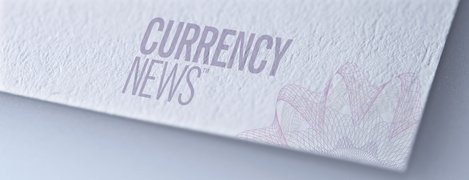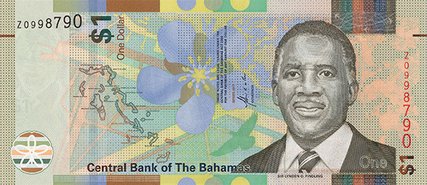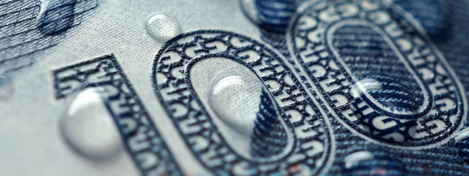

CRISP New Bahamas $1 Hybrid™ Note
The Central Bank of the Bahamas began issuing the original CRISP banknote series in August 2005 (CRISP stands for Counterfeit Resistant Integrated Security Product). With a commitment to renew its banknote series at least once every ten years, it is now in the process of issuing its new CRISP Evolution banknote series (the 7th since the Bahamian dollar was introduced in 1966). The first of these, the new $10 printed by De La Rue, was issued last year.
The CRISP Evolution $1 note is printed on Louisenthal’s Hybrid™ substrate – the first Bahamian banknote denomination to use the durable substrate, which consists of a cotton fibre core protected with an external polymer film. Interest in durable substrates is growing around the world, and in the region, the Bahamas joins Jamaica and Suriname, which have also adopted Hybrid.


The note features Louisenthal’s RollingStar® security thread as one of the key security features, appearing on the reverse. The windowed thread changes colour from gold to green in a rolling bar effect and reveals the letters ‘one’ and ‘$1’ when held up against the light. In keeping with the previous CRISP design, the new $1 note has retained its predominantly green colour scheme but has been made much more colourful with the introduction of shades of lilac, grey, burnt orange and yellow. The banknote features five colour intaglio on both sides, and is finished to the same cut size of 156mm x 67mm. An updated portrait of the Bahamian politician and Prime Minister, Sir Lynden O Pindling, has been used as the main illustration on the front of the note printed in intaglio, and is also used for the watermark.
The design on the note’s reverse includes a drum major in full regalia leading the Royal Bahamas Police Force’s marching band. In line with the new $10, this vignette has been designed in portrait format as opposed to the landscape format of the previous family. Also appearing on the reverse is a vertical iridescent band incorporating a motif of a snake, the letters CBB and the denominational value. Other Level 1 public recognition security features include a see through feature of the sand dollar, a latent image and tactile intaglio ink.
The Bank is using the ‘Feel, Look, Tilt’ strapline to educate the public of these Level 1 security features, as well as the ‘Check’ method for Level 2 features, including the microtext and fluorescence. As part of it public education campaign, the Bank has launched a CRISP Evolution Training Tool on its website, including an online tour developed originally for the $10 together with De La Rue. Users can select denominations from the new banknote series and see the various security features used in the designs. The Bank has also published a video and explanatory leaflet to demonstrate the features of the new $1 banknote.
It is understood that, in addition to the $1, Hybrid will be used for the $5 as well. The highest two, the $100 and $50, will be printed on Landqart’s Durasafe® substrate and the middle two, the $20 and $10, on conventional cotton paper.

Further Reading
Hybrid™ and Hybrid ADDvance®
Hybrid ADDvance and Hybrid are Louisenthal’s solutions for durable and highly secure banknotes from low to high denominations.
RollingStar® Security Threads
RollingStar’s striking colour shift and dynamic effects are a real eye-catcher and ideal for immediate level-one authentication. Use them to achieve distinctive effects, such as the striking “rolling cube” where a truly dynamic colour shift reflection travels over the surface.